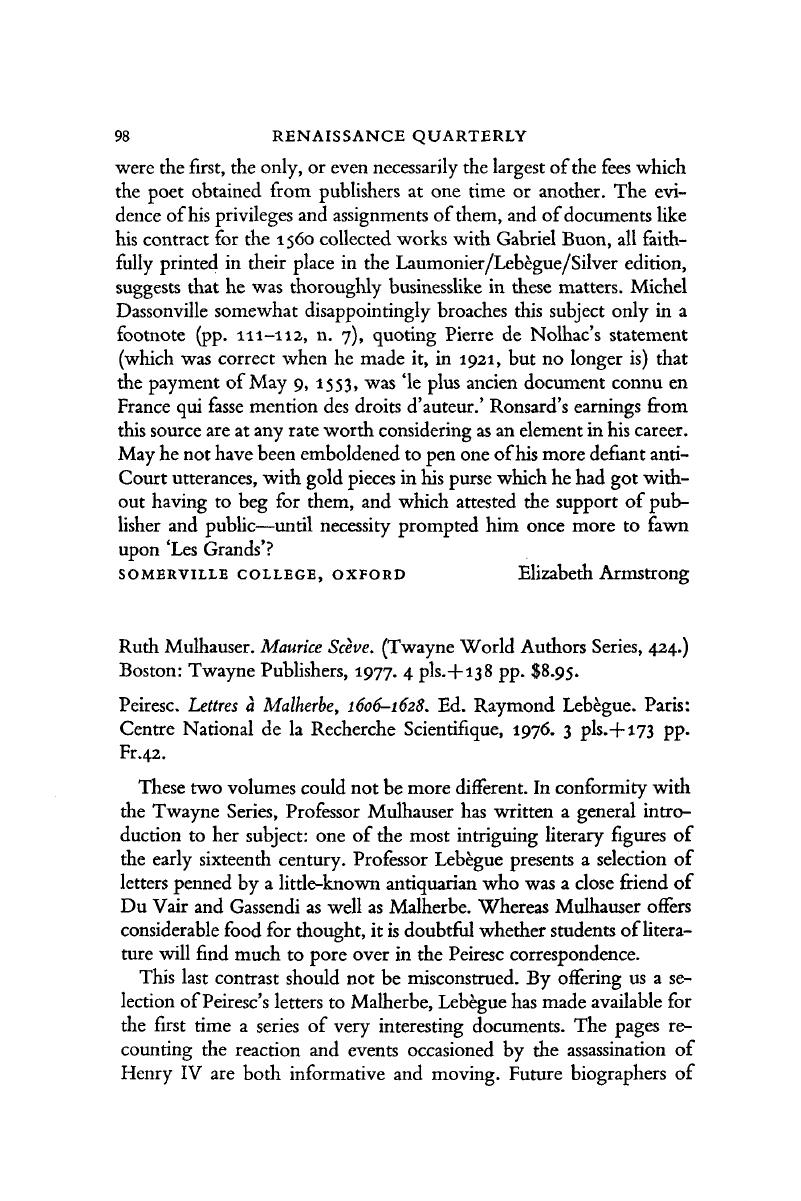No CrossRef data available.
Published online by Cambridge University Press: 20 November 2018

1 A few slips of the pen should be noted. Ronsard did not write La Henriade (p. 125). The discussion of D. 209 (as well as the poem itself) leads one to expect that the last line will be translated'… in its [of memory] victory’ but we are given ‘her victory’ (p. 53). I am certain that v. 4 of D. 376 ‘Par ennuieuse, & grande violence’ means ‘By great and painful violence,’ not ‘By great and envious violence’ (p. 61). The rendering of ‘vive’ (D. 307, v. 10) by ‘holy’ (p. 86) misleads. Although Huguet shows that v if as living may have a religious connotation in the period (the living God), and although the overtone of undying suits the dizain, ‘holy’ scarcely conveys that essential notion.